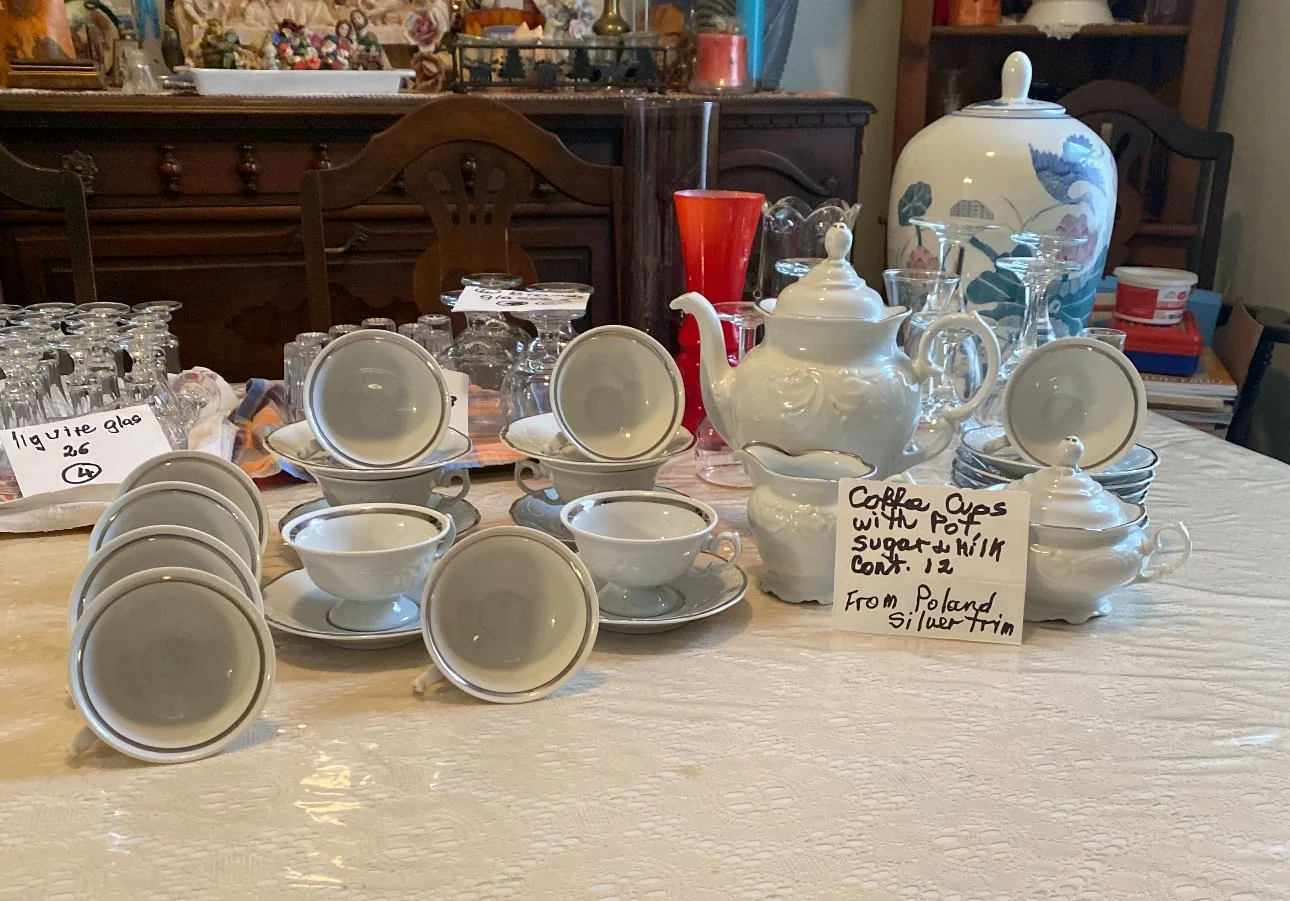The stories of us amid the great purge
We’ve all come to appreciate the value of decluttering. A lighter, fresher space feels good for the soul—and the environment. But as I reflect on my family’s journey, I’m reminded that not everything should be tossed or donated.
Take me, for example. I love using my family’s possessions—china, crystal, lamps, linens. These aren’t just things; they’re threads woven into the fabric of our history. When I set the table with my grandmother’s china or light a lamp my parents once owned, I’m transported back to moments shared with them—conversations, laughter, lessons learned.
These aren’t just coffee cups - they’re a symbol of my husband’s grandmother’s hospitality, warmth, and spirit - values and characteristics we all crave more of in this modern world.
But my husband’s grandmother’s house is being cleared out right now. Decades of memories are being boxed, donated, or discarded. I took one thing: a set of coffee mugs. That’s it. And I wonder—what will those mugs come to mean to me? Will they remind me of her warmth? Will they bring back a specific memory?
Objects, after all, are just objects. Without the stories and connections tied to them, they lose their meaning.
“At LegacyNex, we’re here when you’re ready to preserve the stories behind your family’s treasures. Whether you’re holding on to an item or letting go, we help ensure that the memories and lessons tied to those possessions live on for generations to come.”
The CBC article “The Great Stuff Transfer” highlights a generational shift: younger generations are increasingly offloading family heirlooms. For millennials, this tendency to “let go” is driven by a few factors. Many are more mobile and focused on minimalist living, preferring experiences over possessions. There’s also the reality that so many millennials are dealing with financial pressures—student loans, housing costs, and a tough job market—that make holding onto tangible items from the past less of a priority. And let’s face it, many younger people just don’t feel the same emotional connection to the china and crystal that previous generations valued so highly. In a world where we’re prioritizing sustainability and efficiency, the idea of holding onto items simply because they were once important to someone else feels heavy.
"They don't want shiny cabinets. They want stuff that's useful. They want stuff that they can use every day," said Linda Chu, who runs the company Out of Chaos in Vancouver, capturing the mindset of millennials when it comes to heirlooms. But what worries me is the deeper loss: Are we also discarding the stories, the wisdom, and the memories tied to these objects?
"Pass on that trinket, pass on that memorabilia, because then the stories are also passed on with the item," said Chu. "Pass on the stories while you're alive so that the appreciation of that item is much more real once the person receives it with the stories."
At LegacyNex, we’re trying to bridge that gap. It’s not about the china—it’s about the stories of the people who sat at the table. It’s not about the coffee mugs—it’s about the mornings and moments they represent. LegacyNex helps document and share the memories that give objects their meaning. So, even if an item doesn’t stay in the family, the legacy can live on.
As we navigate what to keep and what to let go of, maybe the real question isn’t just, "Does this spark joy?" but, "What does this say about us?" What stories will future generations carry forward because of this object—or even in spite of it?
So, I’d love to hear from you: What’s the one thing you’ve kept, and why? And if you’re letting go of things, how are you holding on to the stories that matter most?
Let’s make sure the heart of our legacy doesn’t get lost in the great purge.

